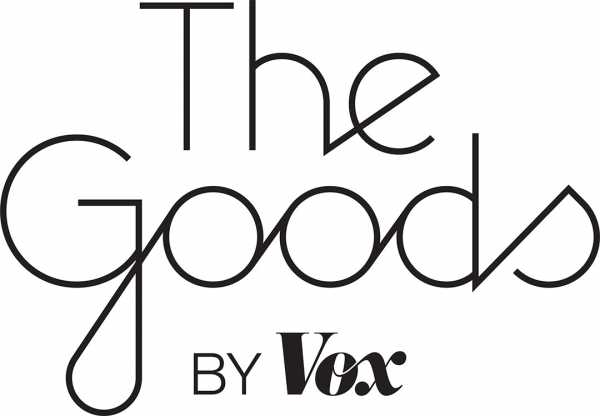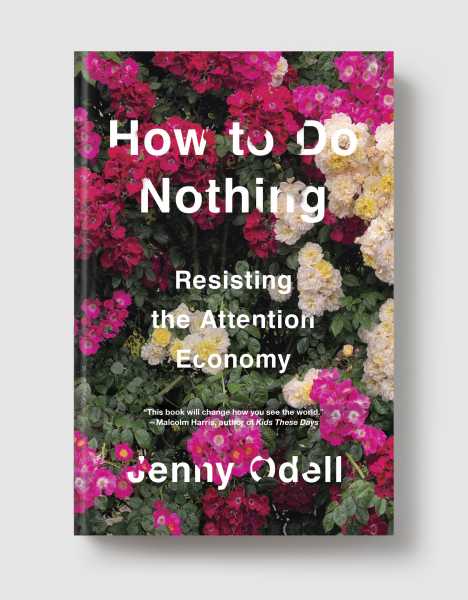

What can you do? To hear most people tell it, you can either succumb to using Facebook and Instagram for hours a day, every single day, or you can delete the apps and throw your phone into the ocean.
Artist and writer Jenny Odell proposes a third choice: to “participate, but not as asked.” Her book How to Do Nothing: Resisting the Attention Economy is out April 9 through Melville House; it’s adapted from a talk she gave in 2017 at the Minneapolis art and technology conference Eyeo. It’s not exactly a guide to doing nothing; more like a suggestion that you could refuse to do some of the things that fracture your attention — reading every push notification that crosses your phone screen, watching 500 Instagram stories between every basic task — and protect your mind from becoming slippery and splintered.
Odell’s proposed course of action doesn’t have much use for the now-trendy “Time Well Spent” movement (which relies on more tech to solve the problem of too much tech) or apps that inform you when you’ve wasted too much of your day on social media, or any solution proposed by the same Silicon Valley wunderkinds who profited from getting us into this mess. The goal of those projects, she argues, is to guide you into repurposing your time in a way that’s productive. They’re purportedly about wellness, but they’re tinged with the stink of capitalist always-on hustle culture. She doesn’t even want to get rid of social media, just redo it. Just get us all some peace.
What if social media were a public utility — one you used for your own purposes and left alone otherwise?
“The villain here is not necessarily the internet, or even the idea of social media,” she writes. “It is the invasive logic of commercial social media, and its financial incentive to keep us in a profitable state of anxiety, envy, and distraction.” The business model of platforms like this — which rely on advertising and clicks and “engagement” as defined by simple data points, not by genuine feeling or the messy work of thought — has created what she calls an “arms race of urgency,” which “abuses our attention and leaves us no time to think.” What if social media were a public utility — one you used for your own purposes and left alone otherwise? What if there were no profit incentive to trap you in a loop of seductive, brightly colored apps?
It’s, oddly, an extremely romantic book, regardless of the number of times the author is obligated to mention Mark Zuckerberg. The “terrifying realization” that all of our fates are linked together is described as “a bit like falling in love.” And How to Do Nothing is concerned not just with the effect that Facebook notifications and “inbox zero” culture have on individuals — “It’s not just that living in a constant state of distraction is unpleasant, or that a life without willful thought is an impoverished one,” Odell explains — but the consequences it has for our politics, environment, and collective well-being.
All public parks, she argues, were an act of resistance taken on by coordinated groups of individuals — and building them required attention. All social progress required attention. All survival in crisis. All revising of unjust systems, such as the American legal code, and all purposeful redirects of sinking ships, such as the Earth.

“If it’s true that collective agency both mirrors and relies on the individual capacity to pay attention, then in a time that demands action, distraction appears to be (at the level of the collective) a life-and-death matter,” she argues as the crux of the book.
How to Do Nothing contains some mourning over the crimes of giant tech companies that you’ve likely heard before, and ends up on long tangents about 1960s counterculture communes, as well as bird-watching. Odell spends much of her time lying on the ground, or examining the Bay Area’s uncomfortable hodgepodge of protected wilderness and ruthless development. There are patches that get boring, which is maybe, at least a little bit, part of the point. She politely refuses to make every page productive.
Recently, I spoke to her about Facebook, and what any one of us can reasonably be expected to do about it, as well as the common feeling of getting less smart and less capable of coherent thought every single day. Luckily, she had some useful advice (and a bird-watching story).
This interview has been edited for length and clarity.
To start, I think it would be useful to have you explain what the attention economy is, as simply or as broadly as you can.
For my purposes, the attention economy is as simple as the buying and selling of attention. There’s the micro, literal version of that, which is “engagement,” a measure of how much time someone spends in an app and how much they engage with it. But I think a broader definition of the attention economy is kind of like — as I personally experience it — I exist in space with a heightened anxiety and sensitivity all the time, even when I’m not literally engaging with any of these apps. And that then contributes to the way I am using them and how often I’m using them.
Why is it profitable for Facebook — or any other social media platform — for our attention to be broken into little tiny pieces and for us to feel so fractured?
I think about this a lot when I find myself going through and checking everything, and just going through a loop of all the things. If you’re measuring how much and how often someone uses something, it’s better if they’re on a short attention loop where they’re constantly checking back in. Where they’re invested in this idea that something might have just happened five minutes ago, so they need to check it again. I think that’s a phenomenon that has led to attention fragmentation, because to have a train of thought, it has to be continuous and relatively uninterrupted. But it’s constantly being interrupted by this idea that there might be something new you need to know.
One thing you said in the book that really stood out to me was, “Our aimless and desperate expressions on these platforms don’t do much for us, but they are hugely lucrative for advertisers and social media companies.” You’re kind of arguing that to social platforms, it’s beneficial for people to be anxious and upset, right?
Yeah, so the commodity of social media is expression, and content from other people that you know. Things like really long screeds about something you feel really passionate about [are] obviously going to get other people’s attention. And I’m not at all saying that’s why people write them. Their emotions are very genuine. And they want to express them; they want to feel heard and have conversations with other people. But I’ve been reflecting on the fact that my posts on Facebook that fell into that category were getting way, way more engagement than anything else I posted.
“If you’re measuring how much and how often someone uses something, it’s better if they’re on a short attention loop”
I saw it as part of this upswell of really similar posts from other people, getting louder and louder, and longer, and more emotional, and you feel some sort of catharsis by making a post or by liking someone else’s post. But two things: It maintains that emotional state, and I think it sort of siphons off energy from doing something a little more targeted or intentional, or just processing that emotion or talking about it with your friends, with more context, where it’s not just material keeping everyone else on a platform.
There have been a lot of former technologists coming out and being like, oh, actually a lot of these things we’ve made are bad, red bubbles are bad, all these things were designed in a really addictive and seductive way and we should undo it, but all their solutions are like, just delete Facebook, or just use a time-well-spent app. Your book didn’t really seem to see those as the most viable solutions for resisting the attention economy, so I was hoping you could lay out a few things you think actually help.
Anything that gives you perspective is hugely helpful to have. Stepping away can be anything; it’s just whatever you can get away with and whatever works for you. For me, I had to give a lecture up at Humboldt State, so I drove up there for two days and it wasn’t really a vacation but I was just amazed at how pulling away for two days jostled my mind a little bit. And from that perspective, I was able to look back at my everyday self, and I felt like a crazy person.
Do anything that can help you stand outside of yourself. And see what you’re doing. I feel like that’s common knowledge in therapy and a lot of addiction therapy, right? Seeing what you’re doing is the first step. It’s this process that detaches you a little bit. It’s from that perspective that you’re able to remember what is actually important to you. Or realize that you don’t know what’s important to you, which is an important thing to know about, if that’s true. But otherwise, you’re stuck in this tiny loop, and getting out of it, even if it’s really brief, that’s still way better than nothing, I think. Realizing that life goes on, away from this stuff.
That’s so hard! I went to New Mexico by myself recently and I felt sick in the head because I’d be walking around in the mountains thinking, like, how much time do I have to spend not thinking about Instagram before I can put this on Instagram?
Yeah, it’s funny you mention that, because, as you know, I’m really into birds, and recently I went to this marsh that’s a really great bird-watching spot. I’m also really into the restoring of habitats and landscapes. This place used to be a traditional water treatment plant, but now they’ve turned it into this marsh that filters wastewater using the structure of the land. Birds love it there. And I was walking around — sometimes it takes a while, it was maybe an hour — and I was like man, I feel like I need wastewater treatment for my brain. There’s so much debris and noise and worry, and nowhere in there a real thought. Not what I would count as a critical thought or deep thought.
“I feel like I need wastewater treatment for my brain. There’s so much debris and noise and worry, and nowhere in there a real thought.”
But at least when I was there, I could see that. I think it’s important to make it a practice. A lot of self-help books have this rhetoric of “do this one thing and your life will change forever,” you’ll never have to read this book again, and you’ll just be fine. I think this is very different; you have to know that you’re going to keep getting sucked back in and be realistic about that.
I’m interested in how the threads of the attention economy and the gig economy come together. Is that something you could unpack? What does the attention economy have to do with optimization and “the hustle” and productivity?
It’s just an extreme version of the idea that time is money. That idea has been around for a long time, but this is taking it to the absolute extreme. It’s not that some time is money, it’s that all time is money. The time you’re sleeping could be money.
And I think it partially comes from the phenomenon of context collapse, which I talked about at the end of the book. If you no longer have a work self and a friend self and a family self, it stands to reason that you don’t have work time and friend time and family time. You have time. And work is metastasized into all of it. It’s all potentially monetizable, and if it’s all potentially monetizable, then you’ve attached a value to it, and there’s a cost to keeping some of it for yourself. Even if you decide, “I’m not going to do anything today,” you feel the cost of that. You already see time as money.
There’s a piece at the end of the book where you bring up the fact that all these Silicon Valley people don’t let their kids use their products, or they put strict limits on their screen time. You express some concern about how privilege will play into who … gets to have a whole brain, basically.
It’s something I think is already happening. I don’t know if you’ve ever seen or been to the roof of Facebook. The roof is amazingly landscaped — it has native species of plants and these meandering walking paths — and in a way, it’s exactly what I’m talking about in the book. It’s the architecture of thinking, it’s put there to encourage innovation and conversation, but just for employees. To me, that’s so emblematic, that this exists in the very center of a place that’s focused on making that sort of impossible for everyone else.
I think I’m a very privileged person. I feel highly aware of the fact that my opportunities for writing this book or even thinking about any of this at all is kind of underwritten by that. So I’m really concerned with how these things are intertwined and driving each other. When one loses attention, you sort of become less able to resist things. It goes back and forth until you have these walking technology-less gardens for some people and the opposite for everyone else.
You’re on Facebook, currently.
Yeah, I am.
Have you changed the way you use it, throughout writing the book?
I got a Chrome extension called Facebook News Feed Eradicator. I highly recommend it, not only because it eradicates your News Feed but because it replaces your feed with a quote and it’s a different quote every time. And they’re really good quotes.
Just having that is huge. One of the things I talk about in the last chapter is this idea of a social network that’s actually a utility, where you go to it to do the thing you wanted to do and then you leave. It’s just sort of there for you to use, like a landline. Certainly, it’s nowhere close to a landline, but having the News Feed Eradicator does take out that really major part of it that makes a lot of users fall down the rabbit hole. A lot of times you’re going to a site because you have some idea of something you needed to do or see, and then 20 minutes later, you have no idea why you’re there. I think that’s a pretty common experience. This, to me, prevents that. I now only go to it for information.
Do you use Instagram? For me, Instagram is a way bigger problem, because I really do like looking at my friends’ faces, but then I’m watching an ad for an underwear startup.
My Instagram is private, and there was a weird moment where I did an Instagram takeover for a photography gallery with a huge following and all these people tried to follow me on my personal account. It was a question for me, because I’m an artist, and common knowledge is that I should accept all of these followers. But then the minute I do that, I’ve accepted that it’s a branding tool for me now. Not a place where I see my friend’s faces and only that.
“We actually really need something like social media … there’s a human need”
This whole “cult of followers” phenomenon on Instagram is very troubling to me. Waves of followers and engagement. Instagram celebrities. It’s all kind of repugnant to me, in general. But I’ve had the same thought you describe, looking through Instagram and feeling gross about it, but simultaneously really enjoying seeing all of my friends.
The common response is, “It’s terrible, I should get off it altogether,” and it doesn’t recognize that we actually really need something like social media. Especially in a time when a lot of people live far away from family, it’s actually really important, I think, to stay connected to other people.
It’s helpful. There’s a human need, and so just recognizing that in yourself as you’re using it, even if you’re watching it be appropriated by the corporate platforms, to not lose sight of that … there’s nothing wrong with that part. That’s a really natural and human and beautiful thing, that you would want to see images of your friends. I think in a way that being able to be aware of that as a feeling will make you realize even more how wrong it is to have that be what’s driving the machine.
Want more stories from The Goods by Vox? Sign up for our newsletter here.
Sourse: vox.com






